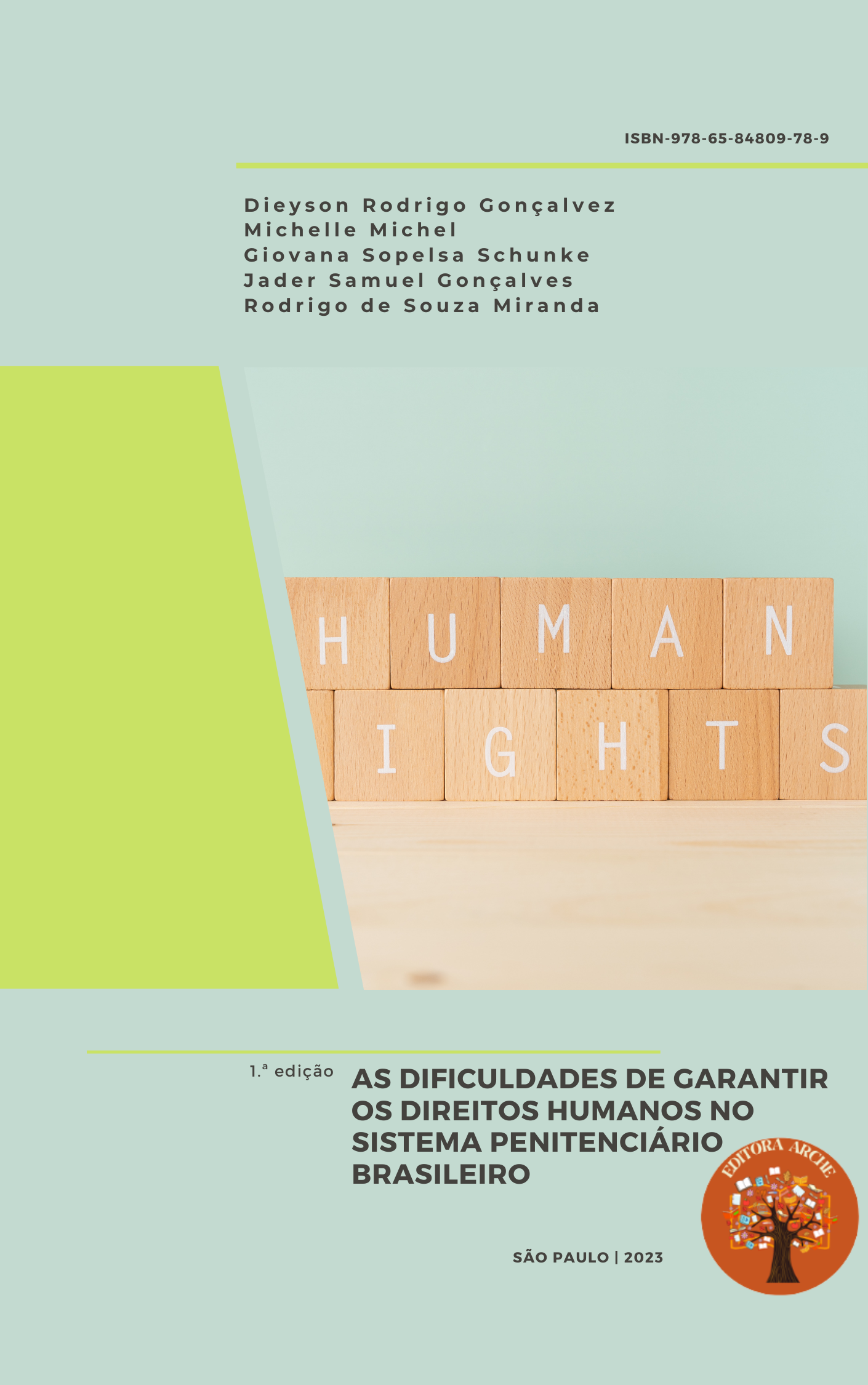THE DIFFICULTIES OF GUARANTEEING HUMAN RIGHTS IN THE BRAZILIAN PENITENTIARY SYSTEM
Keywords:
Human Rights. Penal Execution Law. Brazilian Penitentiary System. Resocialization.Abstract
Distinguished Readers and Readers,
It is a great honor to be here to present the book "The difficulties of guaranteeing human rights in the Brazilian penitentiary system", which addresses such an important and current topic in our country.
Previously, a brief overview of the Brazilian penitentiary system is necessary, which faces numerous challenges to guarantee the human rights of detainees. Prison overcrowding is one of the main problems, which leads to the violation of basic rights such as access to adequate health, hygiene and food, in addition to the lack of space for physical and intellectual activities.
Another important issue is violence within prisons, which is often perpetrated by the inmates themselves and also by correctional officers. This contributes to an environment of constant tension and insecurity, and affects the physical and psychological integrity of prisoners.
In addition, the Brazilian penitentiary system faces difficulties in re-socializing inmates. Many prisoners end up committing crimes again after being released, which highlights the lack of effective public policies for the reintegration of these individuals into society.
Faced with these challenges, it is necessary for the Brazilian penitentiary system to adopt measures aimed at guaranteeing the human rights of detainees. This includes actions to reduce prison overcrowding, improve medical and psychological care, and implement professional training and education programs for prisoners.
In addition, it is essential that there is a change of culture in the system, with the adoption of practices aimed at the humanization of prisons and respect for human rights. This includes adequate training for correctional officers and the creation of dialogue channels between detainees and the authorities responsible for the system.
Given the above, it is correct to say that the Brazilian penitentiary system has faced several challenges to guarantee the human rights of detainees. There are many difficulties encountered, from the overcrowding of prisons to the lack of resources for the implementation of effective public policies.
This book provides a critical and in-depth analysis of the subject, addressing issues such as the violation of human rights, the lack of adequate medical assistance and the inefficiency in the rehabilitation of prisoners.
In addition, the book presents concrete proposals to improve the Brazilian penitentiary system and guarantee the realization of the human rights of detainees. These are important and feasible suggestions that, if put into practice, can bring significant changes to the system.
We hope that this book is a relevant contribution to the debate on human rights in the Brazilian penitentiary system and that it can inspire effective actions by governments and society in general.
In summary, the panorama of human rights in the Brazilian penitentiary system is challenging, but there is a need to seek solutions to guarantee the dignity of prisoners and the effectiveness of the system.
I wish you all good reading!
The authors,
Downloads

Downloads
Published
How to Cite
License
Atribuição CC BY
